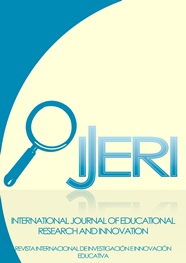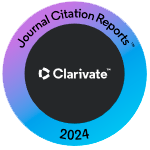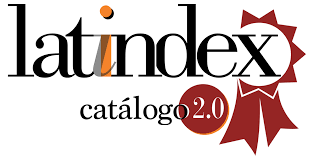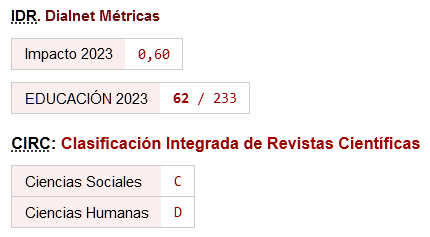How covid-19 lockdown time was predicted: implications of “collective intelligence” in educational research
DOI:
https://doi.org/10.46661/ijeri.4903Keywords:
Coronavirus, Collective Intelligence, Spain, Confinement, Researching in EducationAbstract
Covid19 is one of the biggest global threats since the Second World War. The mathematical models regarding its evolution have been many, although none was found estimating how long confinement would be in Spain. This study aim was to estimate the days of confinement in Spain, using Collective Intelligence. Other both objectives were set out, to analyze the estimation accuracy and to debate about possibilities of Collective Intelligence in Education. A non-probability sample of 203 people was recruited. It was conducted a descriptive analysis, estimation of parameters and a focus group too. The results show a good estimation, with differences by age and gender. Finally, the capacity of Collective Intelligence as teaching resources as well as to research in education is debated.
Downloads
References
Anonymous 1 (s. f.). Naming the Coronavirus Disease (COVID-19) and the Virus That Causes It. Retrieved from https://www.who.int/emergencies/diseases/novel-coronavirus-2019/technical-guidance/naming-the-coronavirus-disease-(covid-2019)-and-the-virus-that-causes-it)
Anonymous2 (s. f.). MUNQU - IMM. Retrieved April 13, 2020 http://covid19.webs.upv.es/
BOE.es—Document BOE-A-2020-3692. Retrieved from: https://www.boe.es/eli/es/rd/2020/03/14/463
Brooks, S.K., Webster, R.K., Smith, L.E., Woodland, L., Wessely, S., Greenberg, N., & Rubin, G.J. (2020). The Psychological Impact of Quarantine and How to Reduce It: Rapid Review of the Evidence. The Lancet 395(10227), 912-20.
Durán, A. J. 2020. ¿Cómo estimar el número de infectados reales por covid-19? Los casos de Andalucía e Italia. Blog del Instituto de Matemáticas de la Universidad de Sevilla [How to estimate the number of real infections by covid-19? The cases of Andalusia and Italy. Blog from the Institute of Mathematics of the University of Seville]. Retrieved from: http://institucional.us.es/blogimus/2020/03/como-estimar-el-numero-de-infectados-reales-por-covid-19-el-caso-de-andalucia-e-italia/
Engert, A. (2020). Collective Intelligence: Crowd Wisdom versus Herding. En CRC TR 224 Discussion Paper Series (crctr224_2020_166; CRC TR 224 Discussion Paper Series). University of Bonn and University of Mannheim, Germany. Retrieved from: https://ideas.repec.org/p/bon/boncrc/crctr224_2020_166.html
Fanelli D. (2012). Negative results are disappearing from most disciplines and countries. Scientometrics, 90(3), 891-904.
Flaxman, S., Mishra, S., Gandy, A., Unwin, H. J. T., Coupland, H., Mellan, T. A., Zhu, H., Berah, T., Eaton, J. W., Guzman, P. N. P., Schmit, N., Callizo, L., Team, I. C. C.-19 R., Whittaker, C., Winskill, P., Xi, X., Ghani, A., Donnelly, C. A., Riley, S., … Bhatt, S. (2020). Estimating the number of infections and the impact of non-pharmaceutical interventions on COVID-19 in European countries: Technical description update. arXiv:2004.11342 [stat]. Retrieved from: http://arxiv.org/abs/2004.11342
Galton, F. (1907). Vox Populi. Nature, 75 (1949), 450-451.
Hinojosa- García, L., & Alonso Castillo, M. M. (2019). Uncertainty, stress and its relationship with psychological well-being in relatives of alcohol dependents. Cultura de los cuidados Revista de Enfermería y Humanidades, 23 (55), 1-10.
Jacobsen, B., Lee, J. B., Marquering, W., & Zhang, C. Y. (2014). Gender differences in optimism and asset allocation. Journal of Economic Behavior & Organization, 107, 630-651. Retrieved from: https://doi.org/10.1016/j.jebo.2014.03.007
Mackay, C. (1841). Extraordinary Popular Delusions and the Madness of Crowds, Farrar, Straus, New York, NY.
Malone, T.W., Laubacher, R. and Dellarocas, C. (2009). Harnessing crowds: mapping the genome of collective intelligence. Social Science Electronic Publishing.
Mossel, E., Neeman, J., Truong, N., & Troxler, S. (2010). Lecture: Condorcet’s Theorem. 5. Retrieved from: https://www.stat.berkeley.edu/~mossel/teach/SocialChoiceNetworks10/ScribeAug31.pdf
Prelec, D. (2017). A solution to the single-question crowd wisdom problem. Nature, 541(7638), 532-535.
R Core Team (2019). R: A language and environment for statistical computing. R Foundation for Statistical Computing, Vienna, Austria. Retrieved from: https://www.R-project.org/
Sampedro, J. (2020). Los datos están mal [The data is wrong]. EL PAÍS. Retrieved from: https://elpais.com/ciencia/2020-03-26/los-datos-estan-mal.html
Schwaba, T., Robins, R. W., Sanghavi, P. H., & Bleidorn, W. (2019). Optimism Development Across Adulthood and Associations With Positive and Negative Life Events. Social Psychological and Personality Science, 10(8), 1092–1101. Retrieved from: https://doi.org/10.1177/1948550619832023
Seely, T.D. (1995). The Wisdom of the Hive. (pp. 20-35). Harvard University Press, MA,
Selker, J., Love, J, & Dropmann, D. (2020). jmv: The 'jamovi' Analyses. R package version 1.2.5. Retrieved from: https://CRAN.R-project.org/package=jmv
Sevillano, E. 2020. «Cada país cuenta los muertos a su manera y ninguno lo hace bien» [ Each country counts the dead in its own way and none does it right]. EL PAÍS. Retrieved from: https://elpais.com/sociedad/2020-03-29/cada-pais-cuenta-los-muertos-a-su-manera-y-ninguno-lo-hace-bien.html
VV. AA. (2020). Españoles enfermaron en los juegos militares de Wuhan y a su regreso con síntomas compatibles con la Covid-19 [Spaniards fell ill at the Wuhan military games and, on their return, presented symptoms compatible with Covid-19]. (2020, May 8). ELMUNDO. Retrieved from: https://www.elmundo.es/espana/2020/05/08/5eb53712fdddffd25b8b45e2.html
White, H. A., & Andsager, J. L. (2017). Third-Person Effect: Basic Concept. In The International Encyclopedia of Media Effects (pp. 1-10). American Cancer Society. https://doi.org/10.1002/9781118783764.wbieme0051
Yu, C., Chai, Y., & Liu, Y. (2018). Literature review on collective intelligence: A crowd science perspective. International Journal of Crowd Science, 2(1), 64-73. https://doi.org/10.1108/IJCS-08-2017-0013
Downloads
Published
How to Cite
Issue
Section
License
Copyright (c) 2020 Antonio Matas Terrón, Carmen Sánchez Barroso, José Manuel Ríos Ariza

This work is licensed under a Creative Commons Attribution-NonCommercial-NoDerivatives 4.0 International License.











